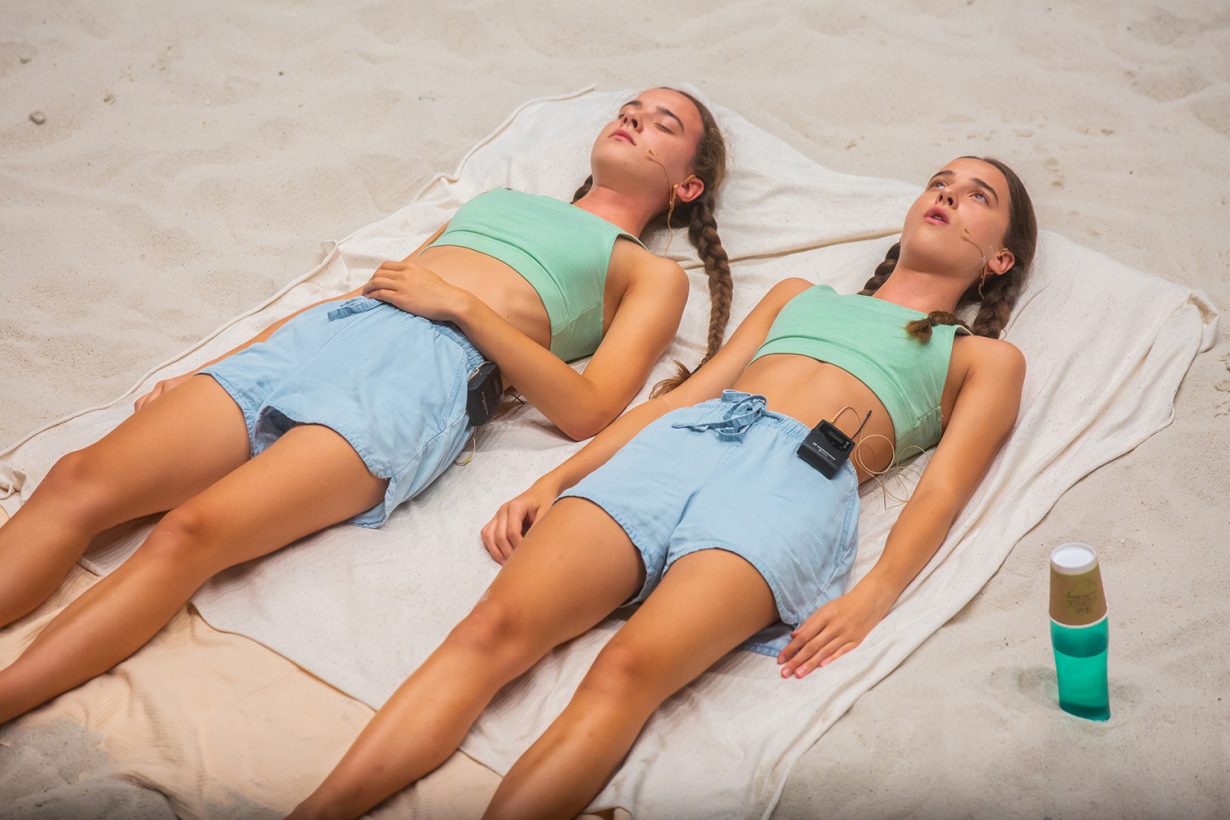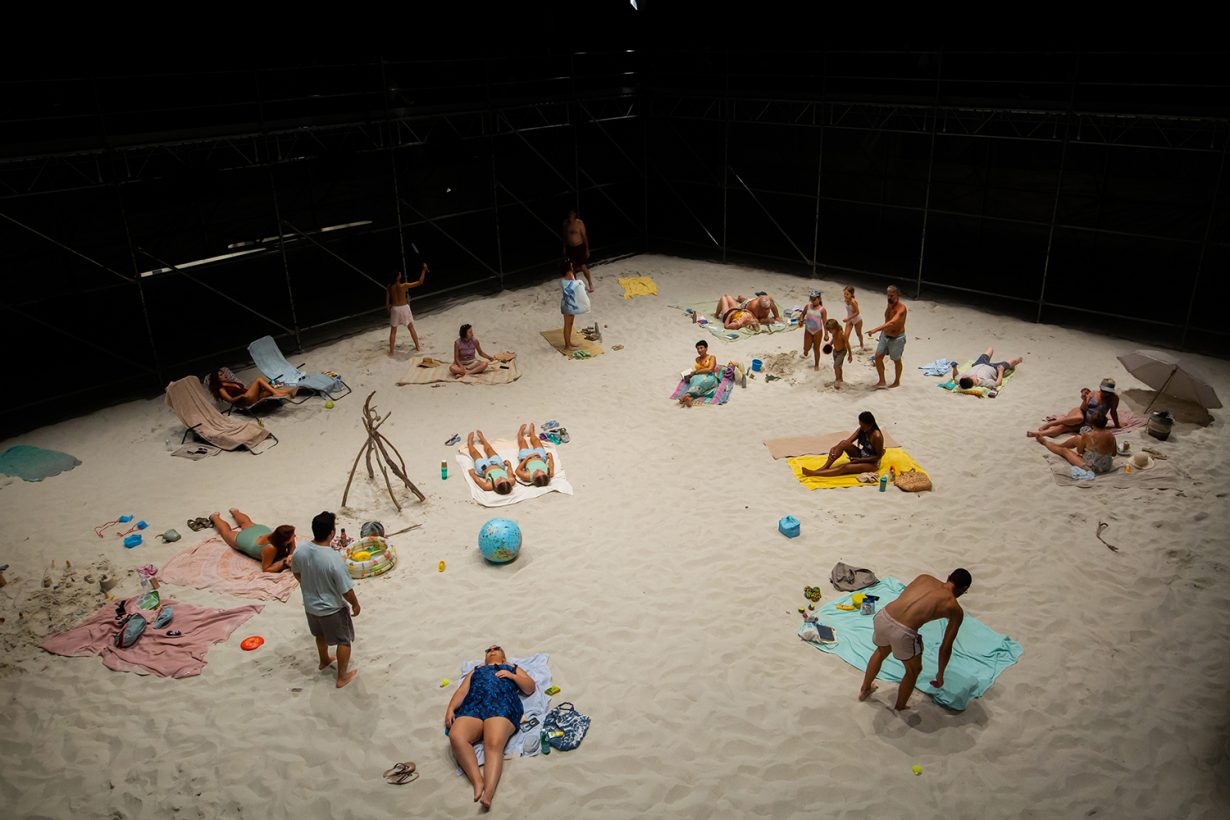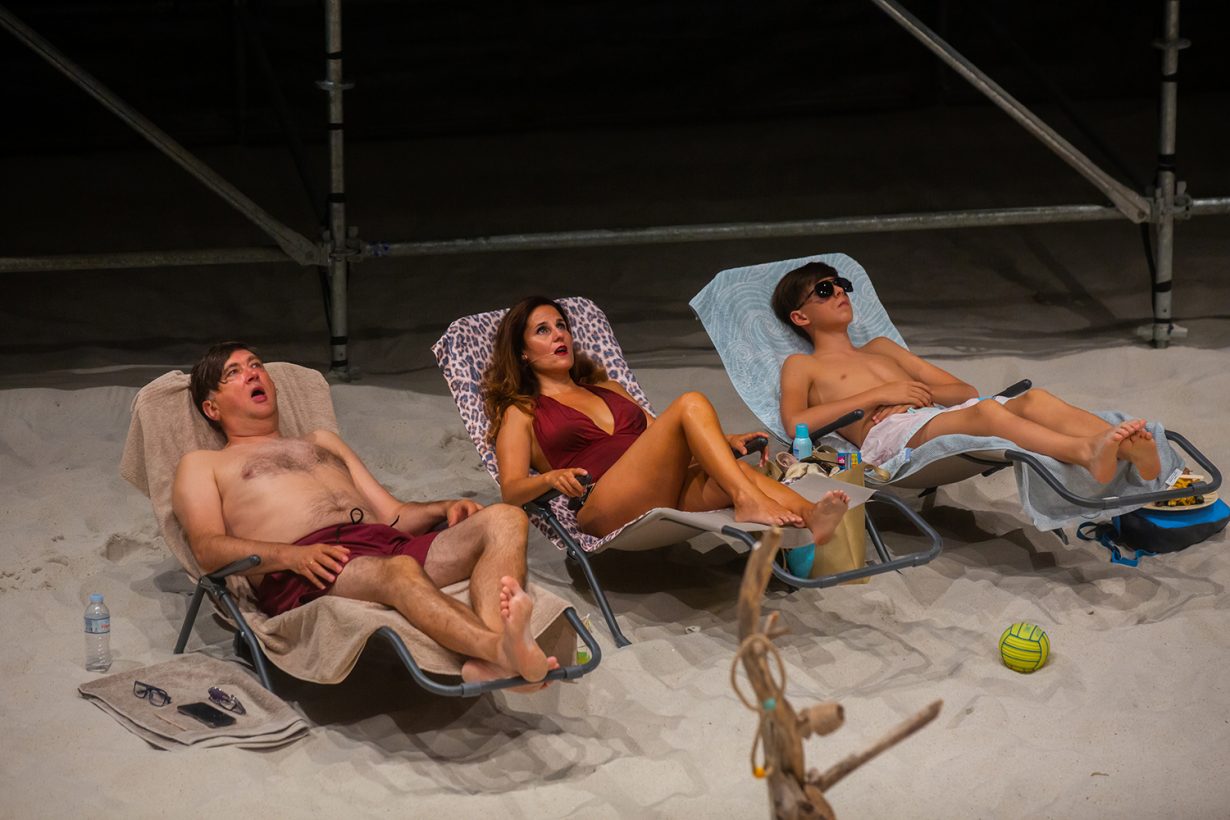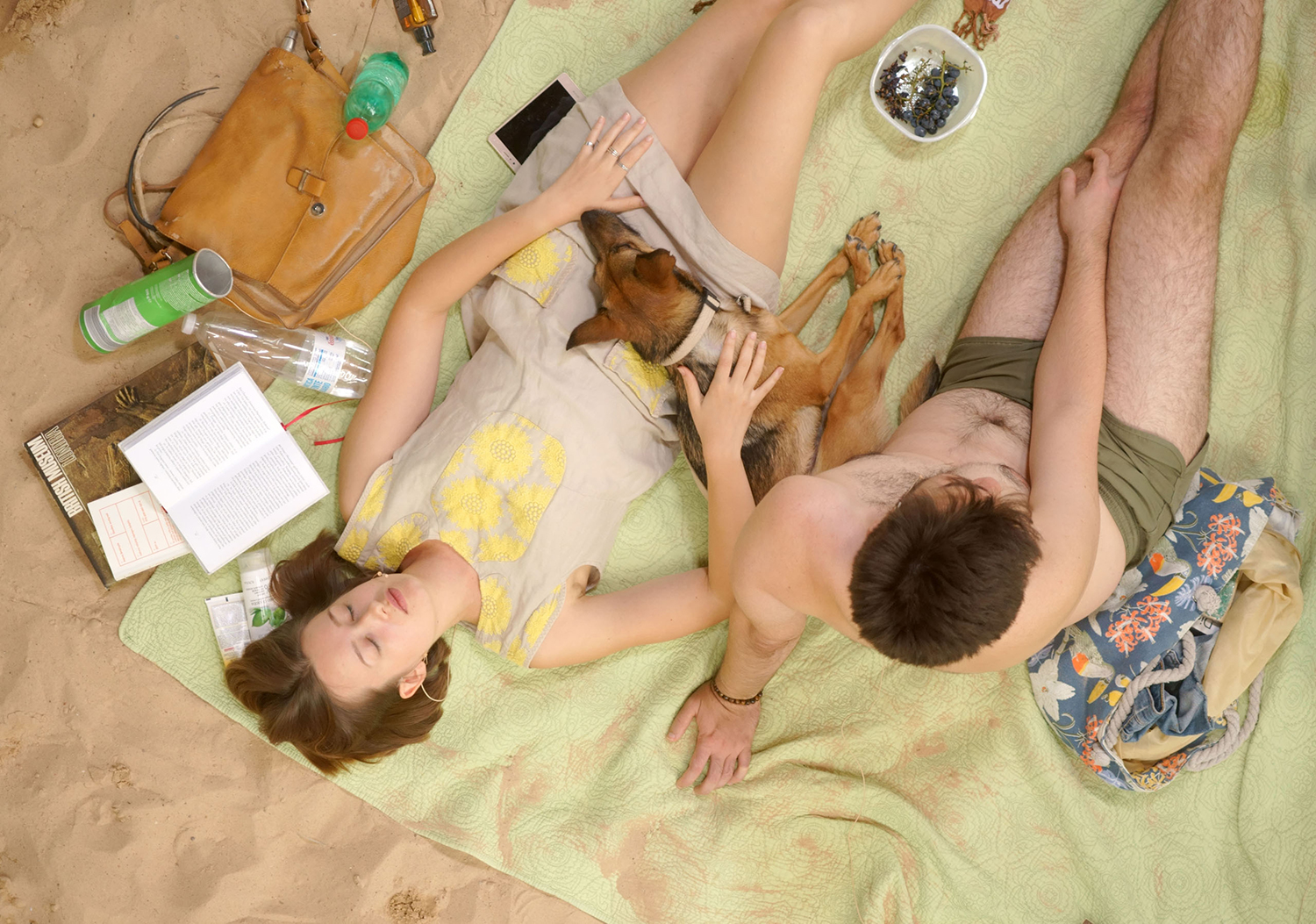The natural expectation when experiencing catastrophe – whether personal or planetary – is that everyone should stop what they’re doing to focus on this turning point in history. But, of course, this doesn’t happen.
The thing about attending to the end of the world is that there are so many other things to be getting on with in the meantime. That the climate crisis is escalating beyond the direst predictions, manifesting in events that would even a few years ago have seemed like science-fiction, doesn’t relieve me of taking the dog out or, for that matter, from writing this column. The natural expectation when experiencing catastrophe – whether personal or planetary – is that everyone should stop what they’re doing to focus on this turning point in history. But, of course, this doesn’t happen. Our mundane responsibilities soon relegate even the collapse of the very systems that support life on Earth to a background hum that we must ignore if we are to muster the energy to pay the rent and keep our dependants in diapers or dogfood.
That the world is changing even while I am tapping away at my computer or opening the window or putting the bins out was brought home to me by Sun & Sea, the opera-performance by Rugilė Barzdžiukaitė, Vaiva Grainytė and Lina Lapelytė. I first saw the work in the Lithuanian Pavilion at the Venice Biennale in 2019, which feels like forever ago and also, because so little has happened in the intervening time to give the period a felt duration, like yesterday. In Venice it was presented as a looping performance into which the audience could wander at any point, an effect cleverly reproduced when Sun & Sea was restaged recently in Athens: although there are discrete performances, the audience is directed to enter (and leave) the performance in media res.

Seeing it in early September, I had the impression of picking up the melody just where I’d left it two years ago. Except that the two girls lying at the centre of the artificial beach on which the opera is staged are now teenagers. The same performers play the role, but they have aged in the interim, which means their characters have aged, which means that I have aged, and while the song remains the same, the subjects of the song – the end of one’s life and the end of the world – have edged appreciably closer. I’ve rarely been so affected by a memento mori.
The opera, which has been touring Europe since Venice and will be staged across the United States for the remainder of the year, consists of around 20 performers laid out on an artificial beach, observed from above by an audience ringed around a mezzanine. The holidaymakers sunbathe, read books, play badminton, eat sandwiches and act in ways broadly consistent with their ages, temperaments and class backgrounds. At intervals, they break into song, and the audience is given access to their interior monologues. What do we think about when we’re on the beach, when the pressures of life under capitalism are momentarily lifted? We think about sex and death as they relate to the self, is the lesson of a libretto which flits like an omniscient narrator with a short attention-span through the consciousnesses of characters that include a stressed-out dad who hates the treadmill of work marginally less than he fears the void that opens up in its absence; a wealthy mum who treats the wonders of the natural world as boxes to be ticked in a travel brochure (“My boy is eight and a half / and he’s already been swimming in / The Black / The Yellow / The White / The Red / The Mediterranean / Aegean seas …”); two young lovers for whom it is bliss to be alive and heaven to be young; a widowed woman, lamenting the loss of her youth; and a sophomore philosopher, so unable to comprehend the scale of capitalism that he must resort to bewildered platitudes (“the banana comes into being… and ends up on the other side of the planet”).

The mundanity of their preoccupations, set to an uncomplicated but affective score resembling a minimalist composition for Hammond organ, is integral to the work’s effect. In these characters’ musings on such things as the natural catastrophe that by grounding flights extended their holidays and brought the two lovers together, the audience is reminded of how fundamentally self-centred is the human position on the world. Moreover, it feels easy to sympathise with the anxieties expressed – who doesn’t feel exhausted by the world? – and hard-hearted to begrudge people the pleasure of a holiday romance or simply ten days’ paid leave from the jobs that make their daily lives miserable. Air travel is a factor in the proliferation of wildfires that blackened the sky over Athens for a stretch of the summer, and package holidays on cheap foreign beaches are another consumer product driving global inequality, but who among this bourgeois-bohemian audience is in a position to cast the first stone?
Instead of taking the opportunity to lecture viewers on their own iniquity (or, more often and less forgivably, the implied iniquity of some other class of people), Sun & Sea allows the world to speak through the experiences of its inhabitants. Which is to say that everyone is preoccupied with themselves, but those selves cannot be disentangled from the catastrophe that is engulfing us all. The experience of every person is an individuated manifestation of that catastrophe. In this opera, humans are the signs and the symptoms of disaster as much as the causes.

The identical twin girls at the centre are identified by the libretto as the ‘3D sisters’ and their enigmatic song might be taken to connect a private experience of loss (the implication is that one or both of them are replicants) to the wider grief attached to a disappearing world that can never artificially be restored. I couldn’t disentangle them in my own mind from the children who in W.H. Auden’s ‘Musée des Beaux Arts’ (1938) are skating on a pond at the edge of the wood. The poem is inspired by Bruegel’s Landscape with the Fall of Icarus (c. 1560), in which ‘everything turns away / Quite leisurely from the disaster’ of Icarus’s fall from the sky into a small patch of sea in the corner of the canvas. As in Sun & Sea, the protagonists are largely oblivious to the catastrophe taking place in the background. But where Bruegel and Auden could be confident that nature would endure these human calamities – the pond would freeze over next year, the farmer would once again till his harvest, the sun would continue to shine ‘as it had to’ – no such solace is available to us.
